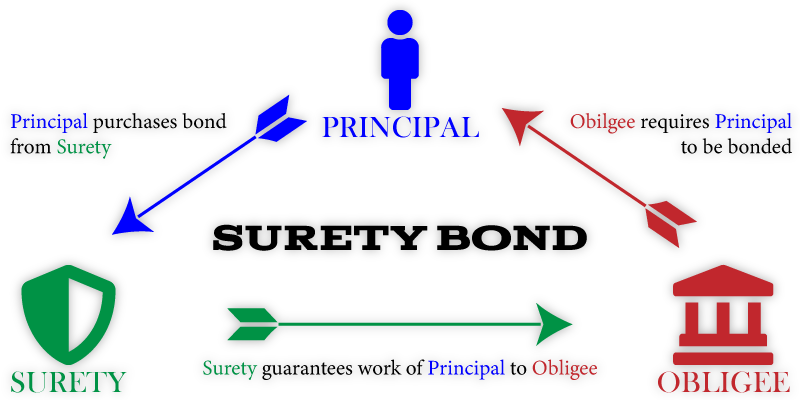Exactly How Bid Bonds Protect Professionals and Ensure Project Stability
Wiki Article
The Duty of Bid Bonds in Competitive Bidding Processes
By giving a monetary guarantee that prospective buyers will fulfill their legal commitments if selected, proposal bonds serve as a crucial tool in alleviating the dangers connected with non-performance. Understanding how proposal bonds run and their effects for both task owners and bidders is crucial for valuing their complete impact on the bidding landscape.What Are Bid Bonds?
A bid bond is a kind of surety bond that functions as a monetary warranty in between a task proprietor and a prospective buyer. It guarantees that the prospective buyer will become part of the agreement at the quote price and give the required performance and settlement bonds if awarded the contract. Bid bonds are typically made use of in construction tasks, where they offer to prequalify professionals and ensure the severity and economic ability of the bidding entity.At its core, a bid bond offers protection to the project proprietor by reducing risks connected with the bidding process. If a prospective buyer, after winning the agreement, falls short to start the task based on the quote terms, the project owner can assert payment as much as the bond's worth. This countervailing device covers the added costs sustained by the proprietor to award the contract to the following least expensive prospective buyer or to reinitiate the bidding process.
Fundamentally, proposal bonds cultivate a degree playing field in competitive bidding environments, ensuring that only solvent and significant prospective buyers take part. They also add to the general honesty and performance of the procurement procedure, giving a layer of safety and security and count on in between job owners and contractors.
Just How Bid Bonds Work
Comprehending the mechanics of quote bonds is essential for stakeholders in the construction sector. A bid bond is a type of guaranty bond released by a surety company, making certain that the bidder will recognize the terms of their quote if awarded the contract. It functions as an economic assurance to the task proprietor that the prospective buyer has the economic capacity and intent to carry out the task at the suggested quote price.To acquire a bid bond, a specialist should put on a guaranty business, offering financial statements, credit rating, and details about the project. The surety firm after that examines the risk related to releasing the bond. Upon authorization, the surety issues the bond to the service provider, who submits it in addition to their quote proposition.

Benefits for Project Owners
Providing substantial benefits, bid bonds give considerable advantages for project owners in affordable bidding process processes. Largely, they act as a monetary guarantee that the chosen professional will certainly become part of the contract at the bid price and equip the needed efficiency and repayment bonds. This guarantee minimizes the threat of the chosen bidder backing out, hence preventing hold-ups and added costs stemming from re-tendering the project.

Additionally, quote bonds advertise fairness and openness within the competitive bidding landscape. By necessitating a bond from all prospective buyers, task proprietors can maintain an equitable having fun area, discouraging pointless quotes and cultivating an expert bidding environment. This inevitably results in the choice of the most proficient and financially audio specialist, maximizing the task's outcome and protecting the owner's investment.
Requirements for Bidders
To join affordable bidding processes, prospective buyers need to fulfill several strict demands made to ensure their capacity and reliability. Prospective buyers are typically required to supply a quote bond, which offers as a financial assurance that the bidder will certainly get in click to read into a contract if granted the task and subsequently equip the required performance and repayment bonds. This proposal bond comforts project proprietors that the bidder has useful content a severe commitment to the project.Additionally, prospective buyers must demonstrate their economic security and ability to carry out the project. This often entails sending audited financial declarations, financial referrals, and credit history scores. Such documentation aids task owners evaluate the bidder's ability to fund the task and manage potential financial strains.
Experience and technical experience are likewise vital. Bidders need to offer evidence of previous tasks of comparable scope and complexity, often with thorough job profiles and client references. This showcases their proficiency and reliability in delivering top quality job.
Typical False Impressions
One widespread false impression is that bid bonds assure the service provider will win the project. In reality, a quote bond simply makes sure that the professional, if chosen, will certainly enter into the contract and offer the required performance and repayment bonds.An additional common misconception is the idea that bid bonds are unnecessary for straightforward or small jobs. No matter job size, bid bonds offer as a protective procedure for project proprietors, making sure major and solvent quotes. Skipping this step can endanger the integrity of the bidding process and might invalidate a service provider from consideration.
Last but not least, some contractors assume that quote bonds are a monetary concern as a result of their expense (Bid Bonds). Nonetheless, the expense of a bid bond is normally a tiny percentage of the bid quantity and is a worthwhile investment for the possibility to protect a task. This small price needs to be deemed an essential element of performing business, not a preventable expenditure. Understanding these nuances is vital for professionals to navigate the affordable bidding process landscape efficiently.
Conclusion
These bonds guard task owners by minimizing the threat of unimportant proposals and improving the openness and fairness of the bidding procedure. By enforcing specific needs on bidders, quote bonds add to much better project end results and enhanced confidence in the option procedure.
A quote bond is a kind of surety bond that acts as a monetary guarantee in between a job owner and a bidder. A bid bond is a type of guaranty bond released by a guaranty company, making sure that the prospective buyer will recognize the terms of their bid if awarded the agreement.If the professional is granted the contract yet falls short to enter into the article source arrangement or give the essential efficiency and repayment bonds, the task owner can assert the quote bond. Prospective buyers are generally required to provide a proposal bond, which offers as a monetary assurance that the bidder will certainly get in right into an agreement if awarded the job and ultimately equip the required efficiency and payment bonds. No matter of task dimension, proposal bonds serve as a safety measure for project owners, guaranteeing economically steady and major bids.
Report this wiki page